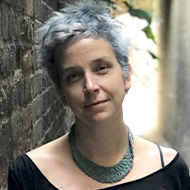
Dr Tamsin Edwards to deliver 53rd Wooldridge Memorial Lecture.
The British Veterinary Association (BVA) has announced that climate scientist Dr Tamsin Edwards will be the keynote speaker for its 2021 Congress (11-12 November) at London Vet Show.
BVA president James Russell said he was “incredibly excited” to be welcoming such an influential voice on climate change “at a time when the whole world will be talking about these issues”.
Dr Edward’s talk, entitled ‘Polar thinking’, will unravel the view that climate change is a black and white issue and present a nuanced and personal journey into the science of climate change.
She will also explain how climate science works, how to deal with polarisation and explore how humans can make sense of an increasingly complex and uncertain future.
“Dr Edwards has a reputation for drawing from a wide range of research within the field of climate science and the environment, and for leaving audiences better informed and better able to question their own and others’ pre-existing beliefs on the subject,” said Mr Russell.
“With the majority of vets in the UK saying they would like to play a more active role in the sustainability agenda, I’m sure colleagues from all areas of the veterinary profession will find her lecture inspiring and informative.”
Dr Edwards began her scientific career as a particle physicist before moving into climate science in 2006. A popular science broadcaster, she writes a blog for the Public Library of Science entitled “All models are wrong” and co-presents BBC Radio 4’s “39 ways to save the planet” with Tom Heap.
Tamsin will deliver the 53rd Wooldridge Memorial Lecture concurrently with the COP26 UN Climate Change Conference, which will be taking place in Glasgow.



 The Veterinary Medicines Directorate (VMD) is inviting applications from veterinary students to attend a one-week extramural studies (EMS) placement in July 2026.
The Veterinary Medicines Directorate (VMD) is inviting applications from veterinary students to attend a one-week extramural studies (EMS) placement in July 2026.